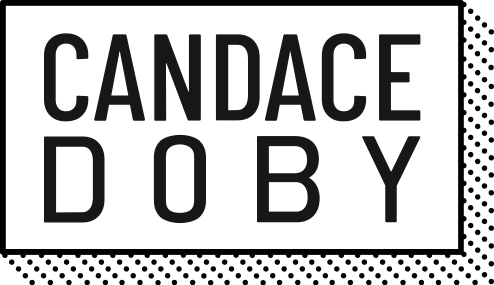I recently chatted with my friend Heather Hansen on her podcast, Elegant Warrior. Midway through our conversation, she asked if there was a common challenge I observed among coaching clients that kept them from flexing their courage muscle to own and demonstrate their brilliance at work. After a brief pause, I answered, in so many words, “fear of failure.”
Upon further reflection, I realized I covered only part of the answer.
There are, I believe, three common actions professionals often need courage for — speaking up, showing up authentically and stepping up. And, interestingly, I’ve found three big fears to coincide with these actions and contribute to difficulty some professionals experience with unleashing their potential and power in the workplace. Here they are … and what professionals can do about them in 2023 to help fuel professional growth.
Fear of Judgment:
Why professionals don’t speak up
Tiffany, a medical professional, wanted to share an idea with her boss about how to improve internal communication, but she chose not to out of fear that the idea may not be “strong enough.” Sean, a public relations professional, devised a new strategy to collect data for client campaigns, but decided not to bring it up to colleagues who were more tenured and experienced than him.
We’re human, which means we’re social beings, which also means we’re wired for connection and belonging. It’s no surprise, then, that we value what other people think about us — how smart or strategic or skilled we are — and consider how our ideas or actions may impact our social standing. Fear of judgment, referred to Fear of Negative Evaluation in psychology, runs deep.
According to research, Fear of Negative Evaluation has a pyscho-evolutionary foundation (and purpose). “Negative evaluations decrease social status with the risk of ultimate social exclusion. Thus, Fear of Negative Evaluation supposedly serves to avoid downward shifts in social hierarchy.” And, let’s be clear … social hierarchies exist within professional organizations. Quite simply, professionals don’t want to lose their spot at the water-cooler or their seat at the table by potentially saying something “off the mark.” They don’t want to lose professional momentum and progress, however big or small or arduous it may be. They don’t want to lose access to people, projects and promotions as a result of being poorly evaluated. So, they eliminate or minimize chances to be judged.
This is not good.
It’s not good for professional growth, which ultimately means it’s not good for organizational growth. Fear of judgement keeps professionals from creating — from acting on the potential of their new ideas or unique perspectives and gaining access to possibilities that didn’t previously exist. In organizations, this impacts creativity and innovation. The good news is that there are implementable strategies to begin managing this fear. They’ll come a bit later, after taking a look at the next two fears.
Fear of Failure:
Why professionals don’t step up
A brief conversation with a conference attendee following one of my presentations revealed that the financial services professional had reservations about promoting up to a job where she would have to manage her current friends and peers. What if I fail? There’s a fancy psychology term for fear of failure: atychiphobia. It sounds like “ah-ticky-phobia.” According to psychologist Guy Winch, though, most people who say they’re afraid of failure are really more afraid of shame. “Rather than feeling guilt or regret about their inadequacies, people living with this fear often end up experiencing a diminished sense of self-worth.” Research uncovers that we came to feel shame as an evolutionary biological deterrent to acting in a way that wasn’t agreeable to the group — that would prevent the group from rendering assistance.
But, today’s professionals aren’t foraging in the wilderness with the pack. Quite honestly, if they’re not failing, they’re not discovering. If they’re not failing, they’re not pushing the boundaries of creation. They’re not learning how reliable or unreliable their skills are or flexing their resilience muscle. An organization stacked with professionals who are afraid of failing are fundamentally restricted from reaching their highest level of excellence. (The professionals themselves are, too.) Therefore, it is important for fear of failure to be reframed. More on that coming.
Fear of Rejection:
Why professionals don’t show up
A Black, professional woman in banking I know wanted to wear her natural hair to work as an honest, authentic expression of her experience and identity, but she flat-ironed her coils each morning before leaving for work. She didn’t want to, in her words, “deal with the looks and whispers of rejection.” Fear of social rejection, as it’s called in psychology, is innate. As humans, we learn to demonstrate pro-social behaviors so we can go along and get along with the group. So much of our brains are devoted to social interaction. Professionals, then, learn to flat-iron their hair, keep quiet about their partners and adhere to the “dress code” or “communication code” so they can be accepted.
When professionals don’t feel like they can bring their whole, real selves to work, they are unable to be fully present and engaged in their work. That’s just how it goes. People don’t leave parts of themselves at their front door when they head to the office. They bring everything and end up suppressing many things in order to avoid rejection. This isn’t just a problem for professionals who can often feel stuck, stunted and silenced when they can’t show up as their fully expressed selves in the workplace. It poses a productivity problem for organizations whose people can spend more time censoring and hiding themselves than owning and demonstrating their brilliance.
At the root of all of these is fear of losing … social connection.
And, there’s quite a bit of work organizations can and need do to create a courage-ready culture where everyone can connect, feel a sense of belonging and perform at their highest potential. It starts with supporting and equipping professionals to own and demonstrate their brilliance — brilliance that is informed by their unique experiences and backgrounds.
Professionals also have a personal responsibility to manage these fears to move their professional growth and development forward.
What can they do?
The answer is short and sweet: evaluate and reframe.
Managing the Fear:
Evaluate the risk
The brain wastes no time cooking up the worst case scenario of professionals losing all of their work friends or being banished to the periphery of projects for speaking up with divergent ideas or showing up as their fully expressed selves. This is all to keep their social connections and standing safe and intact. The brain works at lightning speed to identify and shield professionals from potential problems that could leave them isolated. It doesn’t, however, put in as much work to show professionals the possibilities that can come with courageously demonstrating their brilliance. This is why professionals must put in intentional effort to understand risks related to helping them take up space at work — whether that’s speaking up, stepping up or showing up. What happens if they challenge the consensus in the room? Give critical feedback? Become their friend’s boss? I’m not saying social side-eyes won’t happen. They might. What also may happen is that the door to possibility and professional growth opens. Moving beyond the fear of judgment, failure and rejection requires evaluating them wholly to put them in proper perspective.
In addition to evaluating the risk, professionals have to evaluate the reason why they would ever engage with fear of judgment, failure or rejection. Fear feeds off information. And, if professionals are not clear on why they would speak up, step up or show up on the path to professional growth, fear will feed off them … and leave them without the proper motivation and will to move forward. So, why would would professionals subject themselves to social side-eyes? Why would they flirt with rejection? It has to be for a worthwhile purpose. And, a worthwhile purpose will always be internally motivated and connected to their values.
The final area of evaluation focuses on internal resources. Professionals must determine if they have the confidence and competence to help them persevere through the risk of judgment, failure and rejection to move toward their internally motivated purpose.
Managing the Fear:
Reframe the risk
Today’s professionals are not the same as their prehistoric ancestors whose life literally depended on the aid and protection of the group around them. Moving forward from fear of judgment, failure and rejection, then, requires a bit of reframing, or what psychologists call “cognitive reappraisal.”
To start the reframing process, professionals can take a step back from (anticipated) pain of judgment, failure or rejection and get curious. What if fear was a guide, pointing them to information they didn’t previously consider or shining a light on an opportunity for self-improvement? If they followed the fear, where would it lead them and uncover? What if the potential of judgment and rejection, specifically, weren’t personal? What if the idea just wasn’t a good fit for the problem? What if people aren’t rejecting professionals for expressing themselves authentically? What if the look of rejection is simply onlookers dealing with their own fears and insecurities around doing something similar? What if professionals reframe failure as an opportunity to try again? Or a discrepancy with normal performance?
Evaluation and reframing can help professionals disarm these fears and, ultimately, get around them to help fuel professional growth this year.
If you’re a professional looking for one-on-one leadership development coaching to move your goals forward in 2023, let’s work together.







